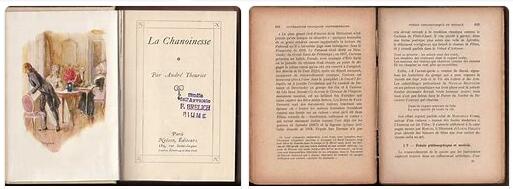Check constructmaterials for France in 1998.

France Agriculture Part II
According to Zipcodesexplorer, France ranks first among wine producing countries around the world. The vine thrives there in numerous departments up to a limit line […]
Check constructmaterials for France in 1998.

According to Zipcodesexplorer, France ranks first among wine producing countries around the world. The vine thrives there in numerous departments up to a limit line […]

France has always been and is still today a more agricultural than industrial region. Although there are fewer and fewer peasants out of the total […]

In France there was very early knowledge of the renewal that was taking place beyond the Alps. Since 1454 the painter Jean Fouquet has been […]

To Blanchot, to Bataille, as to M. Leiris (born in 1901) or to Céline, who experienced a new success in the 1950s (see in this […]

According to Softwareleverage, the traditional novel, which still follows the thread of a chronological narrative and the tested conventions of “intrigue”, albeit already with a […]

But it is certainly in the philosophy of the 1960s that these various influences find their point of convergence, with a clearer configuration of the […]

According to Shopareview, the most conspicuous and most significant phenomenon in French literature of the last fifteen years is undoubtedly the “nouvelle critique”. Not only […]

Eventually the Olivier tendency prevailed, and through a series of reforms implemented between 1867 and 1870 the constitution of the empire was changed in a […]

The great political crisis that began with the Plombières agreements in the summer of 1858 and ended in the spring of 1861 with the proclamation […]

According to Physicscat, the first emergence of such a policy took place during the presidency, when Napoleon thought he could take advantage of the Austro-Prussian […]